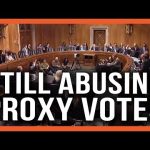The tragic stabbing of 17-year-old Austin Metcalf at a Texas high school track meet has left a community shattered. The young athlete died in his twin brother’s arms after a senseless fight over a seating dispute. His father, Jeff Metcalf, is now speaking out with a message of faith, forgiveness, and a plea to reject political spin over this heartbreaking loss.
Austin Metcalf was a standout student and football player at Frisco Memorial High School. His life ended abruptly when 17-year-old Karmelo Anthony, a student from a rival school, stabbed him during an argument about seating arrangements. Witnesses say Austin and his twin brother Hunter asked Anthony to move from their team’s designated area, leading to a violent outburst that cost Austin his life.
Jeff Metcalf described his son as a natural leader with a bright future. The grieving father emphasized that this tragedy should not be turned into a political battleground. “This was not a race thing. This was not a political thing,” he stated firmly. He urged people to focus on the human toll of one bad decision rather than pushing agendas.
The Metcalf family’s Christian faith has been their anchor during this nightmare. Jeff has already forgiven Anthony, saying, “God takes care of things.” He expressed sorrow for Anthony’s family, whose son now faces murder charges. “It’s unfortunate for everyone involved,” he added, highlighting the ripple effect of reckless actions.
Community members gathered at vigils to honor Austin’s memory. Friends remembered his kindness and determination, while coaches praised his work ethic. The attack has sparked debates about school safety and why a teenager brought a knife to a sporting event. Some critics question parenting standards and moral decay in today’s youth.
Conservatives have pointed to this case as an example of how violence and disrespect threaten American values. They argue that strong families and faith communities could prevent such tragedies. The case also raises concerns about school policies failing to protect students from preventable violence.
Jeff Metcalf’s refusal to blame systemic issues contrasts with broader cultural debates. Instead, he focuses on personal accountability. “What kind of parents did this child have? What was he taught?” he asked. His words remind us that individual choices—not politics—are often at the heart of society’s struggles.
As Austin is laid to rest, his family clings to the belief they’ll reunite in heaven. “It’s not goodbye; it’s see you later,” Jeff said. The Metcalfs’ courage in prioritizing healing over hatred offers a powerful lesson in grace during unimaginable pain.




